THE NEW YORK STEM CELL FOUNDATION



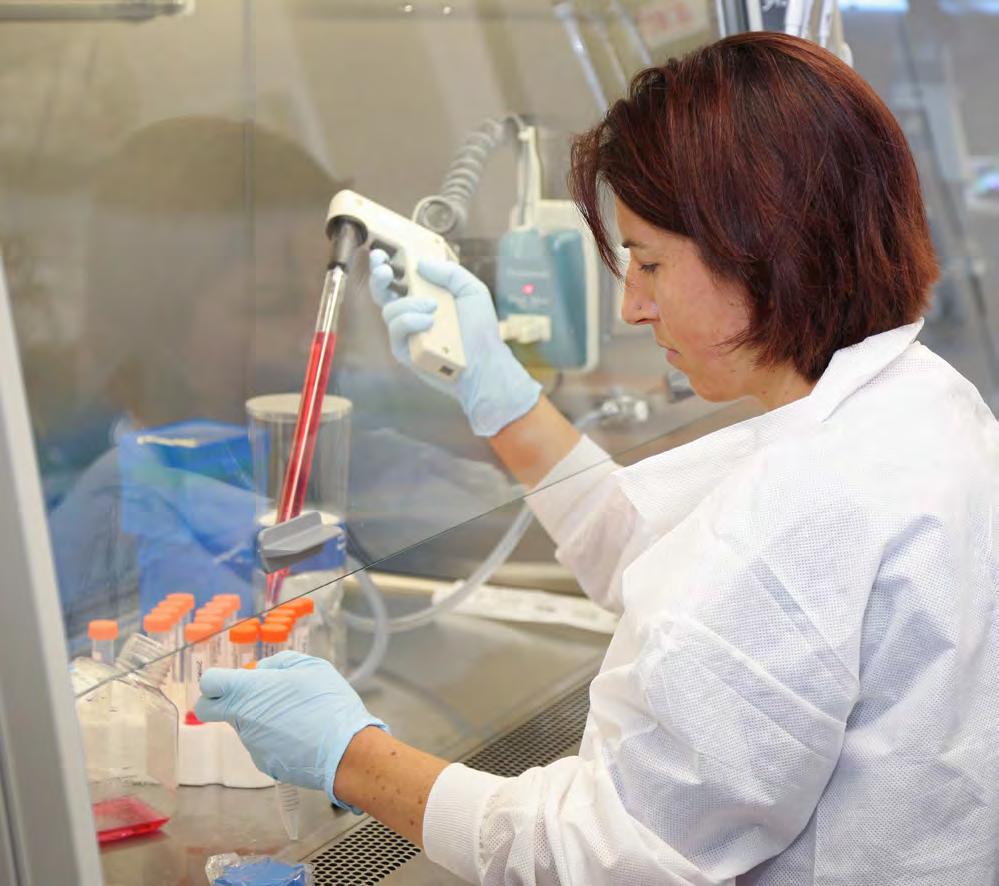
The New York Stem Cell Foundation is accelerating cures for the major diseases of our time through stem cell research.

NY SC F INNOVATOR COMMUNITY
A global community of over 200 scientists leading their generation in cutting-edge research
The NYSCF Research Institute
conducts advanced human stem cell research and develops pioneering technologies for the field. Independent and privately funded, NYSCF takes a “team science” approach to advance cures, collaborating with leading global partners to unravel the root causes of disease through the power of stem cells.

The NYSCF Fellowship Program trains and supports postdoctoral fellows in the pursuit of innovative and groundbreaking stem cell research and is the largest dedicated stem cell fellowship program in the world. The Program provides support for:
• NYSCF – Druckenmiller Fellows
The NYSCF Investigator Program provides critical seed-funding for early career scientists and has created a global community of leading stem cell and neuroscience researchers. The Program provides support for:
• NYSCF – Robertson Stem Cell Investigators
• NYSCF – Robertson Neuroscience Investigators
The NYSCF Investigator Program supports and encourages promising early career scientists whose cutting-edge research holds the potential to accelerate treatments and cures. The Program provides critical seed funding to these outstanding scientists, supporting them as they move beyond their postdoctoral training to establish their own, independent research.


Boston Children's Hospital Brigham and Women's Hospital Harvard University Memorial Sloan Kettering Cancer Center California Institute of Technology Columbia University Harvard University Massachusetts General Hospital New York University
NYU Grossman School of Medicine Northwestern University Princess Máxima Center for Pediatric Oncology, e Netherlands San Ra aele Telethon Institute for Gene erapy, Italy
Stanford University School of Medicine University of California, San Francisco University of Cambridge, United Kingdom UT Southwestern Medical Center Washington University School of Medicine

Princeton University Stanford University e Monell Chemical Senses Center University of Calgary, Canada
INSTITUTIONS OF NYSCF – ROBERTSON STEM
Broad Institute of MIT and Harvard Case Western Reserve University Dana-Farber Cancer Institute
Harvard University Kyoto University, Japan
University of California, Los Angeles University of California, San Fancisco University of Washington Yale University
Stanford University University College London, United Kingdom


Academic Medical Center, Amsterdam, e Netherlands
Boston Children's Hospital
Brain & Spine Institute (ICM), France
Broad Institute of MIT and Harvard California Institute of Technology
Case Western Reserve University
Cincinnati Children's Hospital Medical Center
Columbia University Convelo erapeutics
Cornell University Harvard Medical School Harvard University
Icahn School of Medicine at Mount Sinai
Johns Hopkins University School of Medicine
Lund University, Sweden Massachusetts General Hospital Massachusetts Institute of Technology
Max Planck Institute for Molecular Genetics, Germany
New York University Grossman School of Medicine
Princeton University Stanford University Stanford University School of Medicine e NYSCF Research Institute e Rockefeller University e Salk Institute for Biological Studies
University of Arizona University of California, Berkeley University of California, San Diego University of California, San Francisco University of Geneva, Switzerland University of North Carolina at Chapel Hill
University of Pennsylvania University of Southern California University of Utah Washington University School of Medicine
Weill Cornell Medicine Weizmann Institute of Science, Israel Yale University
The NYSCF – Robertson Stem Cell Investigator Awards provide five years of critical seed funding to outstanding early career scientists all over the world. The Program fosters bold and innovative scientists with the potential to transform the field of stem cell research, and advance the understanding and use of stem cells in the development of treatments for human disease.
Dr. Finley is an Assistant Member in the Cell Biology Program at Memorial Sloan Kettering Cancer Center and an Assistant Professor at Weill Cornell Medical College. Her lab studies the links between metabolism and cell fate regulation in both normal stem cells and in cancer cells. She aims to identify the metabolic networks that sustain proliferation of pluripotent stem cells as they navigate entry and exit from the pluripotent state, and to determine whether metabolic interventions provide a novel mechanism to facilitate the generation of cells with defined pluripotency. Dr. Finley completed her PhD at Harvard Medical School and her postdoctoral training at Memorial Sloan Kettering Cancer Center.
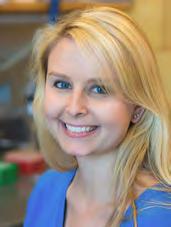
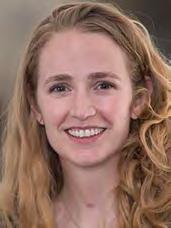
Dr. McKinley is an Assistant Professor in the Department of Stem Cell and Regenerative Biology at Harvard University. Her lab studies how the lining of the uterus regenerates each month after menstruation. Using ex vivo cultures (human endometrial organoids) and in vivo imaging of the only known menstruating rodent, the African spiny mouse, she aims to unravel the mechanisms of endometrial remodeling, and identify the cells that replenish the uterine lining in humans. Gaining insights into endometrial regeneration is critical to address the longstanding unmet needs of patients with infertility, endometriosis, and adenomyosis, as well as the growing incidence of endometrial cancers. She is also the founder of Leading Edge, an initiative to improve the gender diversity of faculty in the biomedical sciences. Dr. McKinley received her PhD from MIT and completed her postdoctoral training at UCSF.

Princess Máxima Center for Pediatric Oncology, The Netherlands
Dr. van Boxtel is a Group Leader at the Princess Máxima Center for Pediatric Oncology in Utrecht, The Netherlands. His lab seeks to understand how mutation accumulation in tissue-specific stem cells fuels somatic evolution and cancer, and has pioneered methods for characterizing this in hematopoiesis. He is investigating the long-term, damaging effects of cancer treatment in tissue-specific stem cells of children, including second malignancies like myeloid leukemia, to understand how the hematopoietic system responds to treatment and identify the molecular determinants underlying adverse late effects in survivors. Dr. van Boxtel received his PhD from the Hubrecht Institute in Utrecht and completed his postdoctoral studies at the University Medical Center in Utrecht.

Dr. Naik is an Assistant Professor at New York University Grossman School of Medicine. Her lab studies the crosstalk between immune cells, epithelial stem and progenitor cells, and microbes in barrier tissues such as the skin, lungs, and gut to understand how immune and microbial signals guide function and how dysregulation of this crosstalk causes disease. She received her PhD from the University of PennsylvaniaNational Institutes of Health Graduate Partnership Program and completed her postdoctoral training at The Rockefeller University.

Dr. Pollen is an Assistant Professor at the Department of Neurology at the University of California, San Francisco (UCSF). His lab combines advances in single cell genomics, genome engineering, and great ape cerebral organoids to identify genomic differences underlying unique features or vulnerabilities of the human brain. Ultimately, he aims to identify novel therapeutic targets by combining an evolutionary approach to selective vulnerability of neurons with new cellular models. He received his PhD from Stanford University completed his postdoctoral training at UCSF.
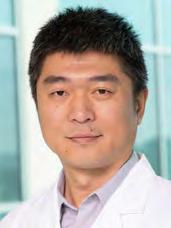
Dr. Wu is an Assistant Professor at the Department of Molecular Biology at UT Southwestern Medical Center. His work has contributed to the development of new culture systems and methods that enable the generation of pluripotent stem cells for basic and translational studies. His lab mainly focuses on using stem cell models and interspecies chimeras (a mix of cells from different species) to gain insights into mammalian development and evolution, as well as to shed light on strategies to someday grow functional, transplantable human organs using animal hosts. Dr. Wu received a PhD from the University of Tennessee, Knoxville, and completed his postdoctoral training at the University of Southern California and the Salk Institute.
Raffaella Di Micco,
Dr. Di Micco is a Group Leader at the San Raffaele Telethon Institute for Gene Therapy, Italy, where she is working to optimize gene therapies that use hematopoietic stem and progenitor cells (HSPCs) – stem cells that generate blood cells. Her work focuses on the biological impact of gene editing procedures on HSPCs for gene therapy applications and regenerative medicine, aiming for sustainable, safe, and clinically broad HSPC-based treatments. She completed her postdoctoral studies at the IFOM Foundation, Italy, and New York University.
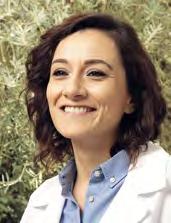

Dr. Morris is an Associate Professor at Washington University in St. Louis who is interested in a method called ‘direct conversion’: transforming one adult cell type directly into another adult cell type. She is leveraging genomic technologies to map the molecular changes involved in direct conversion and ultimately develop therapies to regenerate the small intestine in gastrointestinal disease. She received her PhD from the University of Cambridge, UK and completed her postdoctoral studies at the University of Cambridge, UK and Boston Children’s Hospital.
Dr. Ordovás-Montañés is an Assistant Professor at Boston Children’s Hospital, where he is studying how stem cells cooperate during health, become dysregulated in chronic inflammatory diseases, and can ‘remember’ inflammation. He and his lab are working to establish how ‘inflammatory memory’ is stored in cells to drive these diseases, and how it can be targeted therapeutically. He received his PhD from Harvard Medical School and completed his postdoctoral studies at Boston Children’s Hospital.
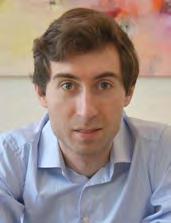
Dr. Hsu is an Associate Professor at Harvard University where she studies how growth and cell fate are controlled, and how different cell types coordinate with one another to maintain tissue function during development, regeneration, and repair. She uses a wide variety of approaches and techniques, including molecular, cellular, genetic and genomic tools, to investigate how stem cell behaviors are regulated. Specifically, Dr. Hsu researches how to help adult skin to better regenerate when wounded, paving the way to improve treatments for challenging conditions like burns, injuries, and chronic wounds. She completed her postdoctoral studies at The Rockefeller University.


Dr. Kiskinis is an Assistant Professor at Northwestern University, where he is using stem cells to model, diagnose, and treat epilepsy in newborns and young children. By studying electrical patterns in the brain cells generated from these stem cells, as well as their ability to establish a network of physical and functional communication, he aims to gain insight into how epilepsy develops and how these cells respond to specific drug treatments, utilizing a precision medicine approach. He completed his postdoctoral studies at Harvard University.
Dr. Merkle is a Principal Investigator at the University of Cambridge, United Kingdom. His laboratory aims to tackle obesity by turning stem cells into large numbers of proopiomelanocortin (POMC) neurons, key brain cells that secrete a hormone (MSH) that potently suppresses feeding. He studies how genes associated with obesity affect the function of POMC neurons, and whether certain drugs can promote MSH production and release. This work will pave the way for future obesity studies in humans. He completed his postdoctoral studies at Harvard University.

Dr. Khurana is the Chief of the Movement Disorders Division at Brigham and Women’s Hospital and an Assistant Professor of Neurology at Harvard Medical School. His clinical and research interests relate to neurodegenerative movement disorders, particularly Parkinson’s disease. His laboratory is using patient stem cells to model and observe the misfolded forms of alpha-synuclein, a protein that becomes toxic in Parkinson’s patients, in order to develop patient-specific therapies. He completed his residency at Massachusetts General Hospital and his postdoctoral studies at the Whitehead Institute for Biomedical Research.
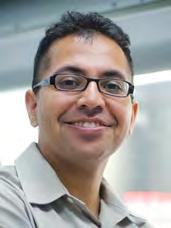
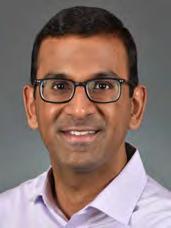
Dr. Sankaran is an Associate Professor of Pediatrics at Boston Children’s Hospital, where his laboratory uses human genetics to better understand hematopoiesis and how it goes awry in human disease. In particular, he seeks to gain molecular insight into how hematopoiesis varies in humans both in health and disease, and to develop improved therapies for a variety of blood disorders. He completed his residency and clinical fellowship at Dana-Farber Cancer Institute and Boston Children’s Hospital, and his postdoctoral studies at the Whitehead and Broad Institutes.
Dr. Wang is an Assistant Professor of Dermatology at Stanford University School of Medicine. His laboratory is primarily focused on how various dynamic epigenetic changes in chromatin structure impact gene expression during stem cell pluripotency, cellular differentiation, and reprogramming, and how novel growth factors participate in this process. His long-term goal is to translate the understanding of these complex mechanisms to study and treat human diseases. He completed his residency at University of California, San Francisco, and his postdoctoral studies at Stanford University.
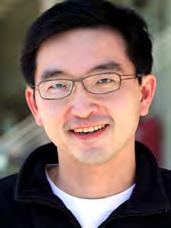
The NYSCF – Robertson Neuroscience Investigator Awards provide five years of critical seed funding to outstanding early career scientists all over the world. The Program supports truly innovative neuroscientists whose research holds the potential to transform our fundamental understanding of the brain and how it functions.
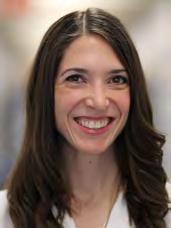
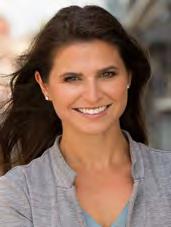
Dr. Alhadeff is a Principal Investigator at the Monell Chemical Senses Center and Department of Neuroscience at University of Pennsylvania. She is interested in understanding how the gut and the brain communicate to regulate our food intake, and thus, control our body weight. Building on the technology her lab has developed for measuring neural activity, and in combination with anatomical, physiological, behavioral and molecular methodologies, she is investigating gut-brain signaling through the understudied spinal cord pathway. This work could ultimately redefine our understanding of the neural control of food intake, and pave the way for effective treatment strategies for diseases rooted in body weight control. She received her PhD from and completed her postdoctoral training at the University of Pennsylvania.
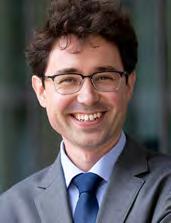
Dr. Nowakowski is an Assistant Professor in the Departments of Neurological Surgery and Anatomy at the University of California, San Francisco. His lab applies new molecular engineering technologies to understand the development and function of diverse cell types in the human brain. Specifically, his goal is to answer unresolved questions about human subplate neurons, which play a critical role in cortical circuit development, and express many genes implicated in neurological and psychiatric disorders. Identifying mechanisms underlying their survival, connectivity and role in local circuit dynamics may offer inroads into gene therapy applications. Dr. Nowakowski received his PhD from the University of Edinburgh, UK and completed his postdoctoral training at UCSF.
Dr. Peña is an Assistant Professor at the Princeton Neuroscience Institute. Her lab focuses on understanding how early life adversity fundamentally changes brain development and imparts risk for psychiatric disorders in adulthood. Leveraging a combination of genome-wide sequencing, unbiased computational approaches, and epigenome editing in mouse models of early life adversity, she aims to uncover the link between changes in trajectories of brain development at the molecular level with stress hypersensitivity. This work will lay the foundation for new therapeutic strategies to prevent onset of mood and anxiety disorders. Dr. Peña earned her PhD from Columbia University and completed her postdoctoral training at Mount Sinai.
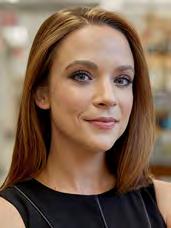

Dr. Falkner is an Assistant Professor at the Princeton Neuroscience Institute, where her lab focuses on understanding how social experiences, including social dominance and defeat, change neural circuits in the brain and alter information flow to change behavior. She aims to understand how changes to this network may underlie the ability for an individual to display adaptive behaviors, including resilience in the face of social stress. She received her PhD from Columbia University and completed her postdoctoral training at New York University.
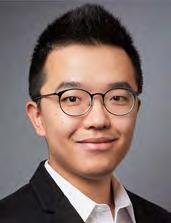
Dr. Guo is an Assistant Professor at the Department of Neuroscience at Yale University School of Medicine, where his lab is developing and applying new tools to investigate RNA-based gene regulatory mechanisms in the nervous system. His research aims to understand how these mechanisms may be specialized in the nervous system as well as their roles in neurodegenerative diseases. He received his PhD at Johns Hopkins University and completed his postdoctoral training at the Whitehead Institute/MIT.
Dr. Orefice is an Assistant Professor at the Department of Molecular Biology at Massachusetts General Hospital. Her lab studies the development and function of somatosensory and viscerosensory circuits that mediate our sense of touch and sensations from the gastrointestinal system, respectively, and how these circuits are altered in developmental disorders including autism spectrum disorder. Dr. Orefice received her PhD from Georgetown University and completed postdoctoral studies at Harvard Medical School.

Dr. Guo is an Assistant Professor at the University of Calgary, Canada. Her research is focused on primary cilia – hair-like, signaling antennas on virtually all cells used to gather information about their environment. Cells in the brain are particularly vulnerable to primary cilia impairment, which can be associated with intellectual disabilities and autism spectrum disorder. Dr. Guo aims to investigate how primary cilia contribute to the brain’s functional wiring and related disorders. She received her PhD from Kent State University and completed her postdoctoral studies at University of North Carolina at Chapel Hill.
Dr. Schneider is an Assistant Professor at New York University, where he leverages the mouse model to understand how the brain stores and recalls memories to make and use predictions about the future. His research focuses on studying the interaction of auditory and motor systems during sound-generating behaviors to anticipate the sounds our movements make. This work aims to fundamentally shift how neuroscientists think about sensory processing. He completed his postdoctoral studies at Duke University.
John Tuthill, PhDDr. Tuthill is an Associate Professor at the University of Washington, where he is researching the “sixth sense” known as proprioception, the sense of where the body is in space. He aims to answer how and where motor circuits integrate proprioceptive information and why people without proprioception can execute some movements but not others. Utilizing the fruit fly, Dr. Tuthill is aiming to discover the fundamental principles of the nervous system and help treat patients without proprioception and those with chronic pain. He completed his postdoctoral studies at Harvard University.
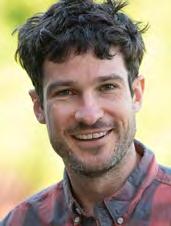
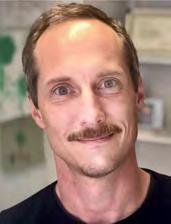
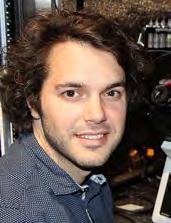
Dr. Bellono is an Assistant Professor at Harvard University, where he leverages the specialized sensorimotor system in the octopus to probe mechanisms underlying the detection, discrimination, and integration of environmental signals. Octopuses use each of their eight flexible arms to process sensory information independent of the centralized brain to produce sophisticated behaviors. His work aims to establish a foundation for developing therapeutics for various sensory processing and sensorimotor disorders. He completed his postdoctoral studies at University of California, San Francisco.

Dr. O’Connell is an Assistant Professor at Stanford University. She is working to understand the mechanisms underlying how infants and toddlers learn to make appropriate behavioral decisions in different social contexts. Her research uses social tadpoles that make life-or-death decisions based on accurate assessment of social stimuli. This work will inform our understanding of how the neonatal brain regulates social decision-making and has implications for the pathologies behind eating-related psychological disorders and other disorders involving social recognition and communication abnormalities. She completed her postdoctoral studies at Harvard University.
Dr. Oka is a Professor at California Institute of Technology, where he is researching how individual neural populations interact by focusing on thirst and drinking behavior. He aims to understand how internal need signals (thirst) are translated into behavioral outputs (drinking) by interrogating the molecular and functional organization of neural circuits underlying body fluid balance. He is also aiming to develop a novel method to allow efficient genetic access to a given cell type, which would significantly accelerate neural circuit analysis and not be limited to any particular model organism. He completed his postdoctoral studies at University of California, San Diego and Columbia University.

Dr. Aronov is an Assistant Professor of Neuroscience at Columbia University, where he is seeking to overcome the major challenges to learning and memory research by using a unique model system, the blackcapped chickadee, a bird that is exceptionally adept at storing memories. He aims to study food-caching in chickadees – a process of hiding thousands of food items in scattered, hidden locations, and finding them up to a month later – to obtain general insight into how neural networks store and recall episodic memories in other animals, including humans. He completed his postdoctoral studies at Princeton University.
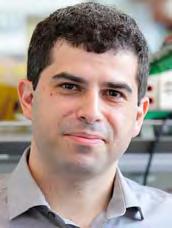

Dr. Hsiao is an Associate Professor in the Department of Integrative Biology and Physiology at University of California, Los Angeles. Her laboratory is studying the gut microbiota, an important modulator of brain function and behavior. She is examining the microbiome as an interface between gene-environment interactions in neurological diseases. She aims to dissect biological circuits for communication between the gut microbiota and nervous system towards understanding fundamental biological pathways that influence brain and behavior. She completed her postdoctoral studies at California Institute of Technology.
Carolyn (Lindy) McBride, PhD Princeton UniversityDr. McBride is an Assistant Professor in the Department of Ecology and Evolutionary Biology at Princeton University. Her laboratory studies the recognition of human odor by disease vector mosquitos and, more generally, how olfactory systems have evolved to process biologically relevant odor blends. Her model is the Aedes aegypti mosquito, an insect specialized in the recognition of a single complex odor blend – human odor. This work will inform efforts to curb the spread of mosquitoborne disease, such as dengue, Zika, chikungunya, and yellow fever. She completed her postdoctoral studies at The Rockefeller University.

The NYSCF – Robertson Investigator Alumni continue to participate in the greater Innovator Community through The NYSCF Conference, the annual Innovators Retreat, Alumni meetings, and an ongoing series of collaborations and projects. They are part of a global network of scientists who are working to accelerate the path of research from bench to bedside.
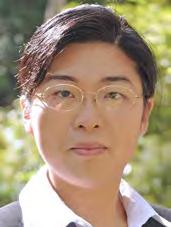
Dr. Chen is an Associate Professor in the Department of Surgery at Weill Cornell Medical College, where she focuses on manipulating stem cell fate using chemical and biological approaches and generating functional tissues and organs that can be used for translational research. Her lab’s goal is to use these patient-specific tissues and organs for replacement therapy, particularly in diabetes. She conducted her postdoctoral studies at Harvard University, where she studied the directed differentiation of human embryonic stem cells toward the pancreatic lineage.
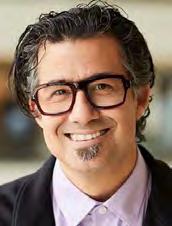
Dr. Rossi is CEO of Convelo Therapeutics, a biotech company developing a new class of medicines that unlock the regenerative capacity of the central nervous system. He is currently serving as Interim CEO of NYSCF. Previously, he was an Associate Professor at Harvard Medical School, where he worked on programming cells into clinically useful cell types. Dr. Rossi has been involved with the foundings of numerous companies, such as Intellia Therapeutics, Magenta Therapeutis, Stelexis Therapeutics, and Moderna. He completed his postdoctoral studies at Stanford University.
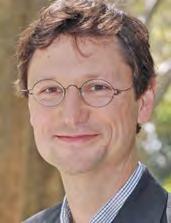
Dr. Tesar is Vice President of Biology at Convelo Therapeutics and a Professor at Case Western Reserve School of Medicine, where he works on directed differentiation of stem cells into oligodendrocytes to study diseases such as multiple sclerosis. By comparing stem cells from different patients, he has a tractable system to study human developmental genetics and uncover new genetic or pharmacological therapies. As a postdoctoral fellow at the National Institute of Neurological Disorders and Stroke at the National Institutes of Health, he discovered epiblast stem cells. He is a NYSCF – Robertson Stem Cell Prize Recipient.
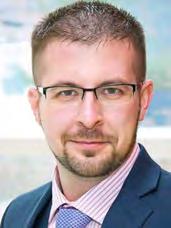
Dr. Wernig is an Associate Professor of Pathology at the Institute for Stem Cell Biology and Regenerative Medicine and the Department of Pathology at Stanford University, where his lab investigates the mechanisms that determine neural cell fate decisions. His laboratory was the first to generate functional neuronal cells reprogrammed directly from skin fibroblasts. They are now working on cell transplantation-based strategies for a variety of monogenetic diseases. He completed his postdoctoral research at Whitehead Institute for Biomedical Research at MIT. He is a NYSCF – Robertson Stem Cell Prize Recipient.

Dr. Arlotta is a Professor and Chair of the Department of Stem Cell and Regenerative Biology Department at Harvard University, where she investigates the mechanisms that control the development, regeneration and assembly of neurons in the cerebral cortex. Much of her work is aimed at identifying regenerative strategies for neurodegenerative and traumatic diseases of the corticospinal tract, including Amyotrophic Lateral Sclerosis (ALS) and spinal cord injury. She completed her postdoctoral research at Harvard Medical School. She is currently serving as Scientific Advisor at NYSCF.
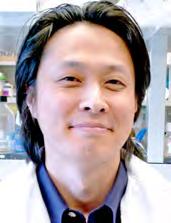
Dr. Lee is a Professor at Johns Hopkins University School of Medicine, where he is studying stem cells created from the cells of patients with rare diseases like Familial Dysautonomia, Charcot-Marie-Tooth disease, and muscular dystrophy in order to investigate their pathology and develop new treatments and therapies. During his time as a NYSCF –Druckenmiller Fellow at MSKCC, he established a novel methodology for direct derivation and prospective isolation of neural crest cells derived from human pluripotent stem cells.
Dr. Majeti is a Professor in the Department of Medicine and Director of the Institute for Stem Cell Biology and Regenerative Medicine at Stanford University, where he focuses on the molecular and genomic characterization as well as therapeutic targeting of leukemia stem cells in human hematologic malignancies. He has isolated a protein, CD47, as a protector of cancer cells and is working to treat cancer by silencing it. He completed his postdoctoral studies at Stanford University.

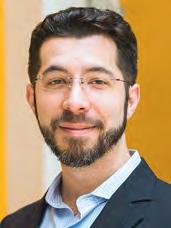
Dr. Boyden is a Professor in Neurotechnology at MIT and Professor of Biological Engineering and Brain and Cognitive Sciences at MIT’s Media Lab and McGovern Institute. He leads the Synthetic Neurobiology Group, which develops tools for controlling and observing the dynamic circuits of the brain, and uses these neurotechnologies to enable systematic repair of intractable brain disorders such as epilepsy, Parkinson’s disease, post-traumatic stress disorder, and chronic pain. He completed his postdoctoral research at Stanford University.


Dr. Gregg is an Associate Professor or Neurobiology and Anatomy at the University of Utah, researching the function and regulation of imprinted genes expressed in circuits of the brain that modulate feeding and motivated behaviors. In particular, he is working to uncover epigenetic regulatory pathways that program gene expression in the brain during early life. Dr. Gregg completed his postdoctoral research at Harvard University.
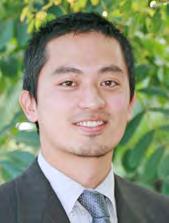
Dr. Komiyama is a Professor of Neurobiology and Neurosciences at University of California, San Diego. He is interested in studying the activity of neuronal ensembles in behaving animals, examining how these ensembles may change with experience and learning. His lab is among the pioneers to use in vivo two-photon calcium imaging in awake, behaving mice. During his postdoctoral training at Howard Hughes Medical Institute, he pioneered the use of in vivo two-photon calcium imaging to study learned behavior.
Dr. Maimon is an Associate Professor at The Rockefeller University, where his work focuses on the mechanisms of cognition and integrative brain function. His lab aims to link the electrical activity of neurons and the biochemical action of molecules to their computational roles in animal behavior. His research program provides a platform for discovering basic mechanisms of how brains integrate, think, and decide. He completed his postdoctoral research at the California Institute of Technology.
Deepta Bhattacharya, PhD University of Arizona
Dr. Bhattacharya is a Professor in the Departments of Immunobiology and Surgery at the University of Arizona, where his lab focuses on stem cell-based approaches for the treatment of immune deficiencies and on the molecular and cellular mechanisms of resistance to viral infections. He started his independent laboratory at Washington University School of Medicine before moving to University of Arizona. He completed his postdoctoral studies at Stanford University.
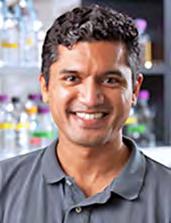
Dr. Egli is an Assistant Professor of Developmental Cell Biology in Pediatrics at Columbia University, where he focuses on the generation of therapeutically relevant cells for the treatment of diabetes. His work has relevance for the use of stem cells to study disease, screen for new drugs, and develop cell replacement therapies. He received a NYSCF – Druckenmiller Fellowship in 2008, and conducted independent research at The NYSCF Research Institute before establishing a laboratory at Columbia.
Alexander Meissner, PhD Harvard University Max Planck Institute for Molecular Genetics, Germany
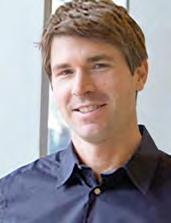
Dr. Meissner is a Professor at Harvard University and Director and Head of the Department of Genome Regulation at the Max Planck Institute for Molecular Genetics, Germany. He is developing and applying next-generation sequencing technologies to the human genome with the goal of better understanding normal and diseased cellular states and how to alter them. He completed his postdoctoral studies at the Whitehead Institute for Biomedical Research at MIT.
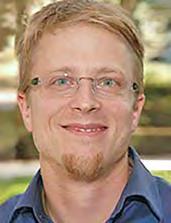
Dr. Harvey is an Associate Professor in the Department of Neurobiology at Harvard Medical School, where his lab focuses on understanding the neuronal circuit mechanisms underlying short-term memory and decision-making, using a range of imaging, electrophysiological, genetic, and behavioral approaches. He investigates how circuits perform computations, especially in the context of spatial navigation. He completed his postdoctoral studies at Princeton University.

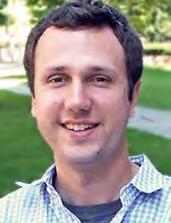
Dr. Long is a Professor in the Departments of Neuroscience and Physiology and Otolaryngology and the Associate Director of Research of the Neuroscience Institute at New York University Grossman School of Medicine. His work focuses on developing approaches that adapt modern imaging and electrophysiological tools to the study of neural circuits underlying the production of skilled motor behaviors. He completed his postdoctoral studies at Massachusetts Institute of Technology.
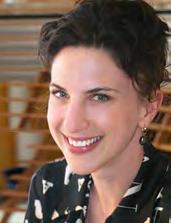
Dr. Ruta is a Professor of Neurophysiology and Behavior at The Rockefeller University, where her lab is using novel methods to trace and probe neural circuits to gain insight into the neural basis for innate and adaptive behaviors. Her lab has examined how the nervous system is wired to flexibly encode and assign meaning to the chemical world. She completed her postdoctoral studies at Columbia University.
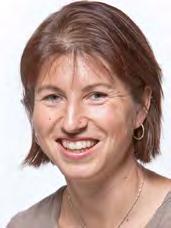
Dr. Brennand is a Professor at Yale University, where her research focuses on schizophrenia, a debilitating psychiatric disorder with no cure. By developing a human stem cell-based model for the study of predisposition to neuropsychiatric disease, she has established a new mechanism by which to systematically test the impact of causal variants in human cells. She completed her postdoctoral research at the Salk Institute for Biological Studies.
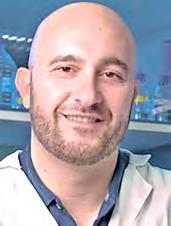
Dr. Hanna is a Senior Scientist and Professor in the Department of Molecular Genetics at the Weizmann Institute of Science in Israel, where he explores topics in embryonic stem cell biology, early embryonic development, and the modeling of human diseases. His research holds the promise of creating powerful research models for degenerative and autoimmune diseases such as type 1 diabetes. He completed his postdoctoral studies at the Whitehead Institute for Biomedical Research.
Jay Rajagopal, MD Harvard Medical School
Dr. Rajagopal is a Professor at Harvard Medical School and the Center for Regenerative Medicine at the Massachusetts General Hospital, where his laboratory focuses on the application of stem cells and regenerative biology to human lung disease. His interest in regeneration is focused on understanding how cells respond to injury and restore normal tissue form and function. He completed his postdoctoral research at Harvard University.

Dr. Freiwald is a Professor at The Rockefeller University where he heads the Laboratory of Neural Systems. His work focuses on the neural circuit mechanisms of face recognition, attention, and social cognition. He and his lab have shown that the brain is composed of a fixed number of face-selected regions, each dedicated to a different dimension of facial information, yet interconnected to form a face-processing network. He completed his postdoctoral training at MIT and Harvard Medical School.
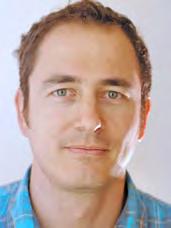
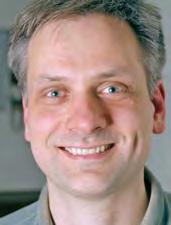
Dr. Huber is an Associate Professor in the Department of Basic Neurosciences at the University of Geneva, Swizerland, where his lab currently combines novel behavioral paradigms with electrophysiology and innovative optical imaging tools to study how different areas of the frontal cortex interact during decision-making and the control of goal-directed action. He completed his postdoctoral studies at the Cold Spring Harbor Laboratories and at the Janelia Farm Research Campus.
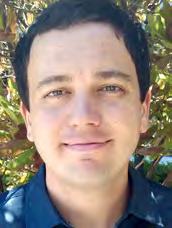
Dr. Knight is an Associate Professor in the Department of Physiology at University of California, San Francisco, where his lab is developing new technologies for mapping neural circuits by sequencing RNA and using these tools to identify the cells that control innate behaviors such as feeding. He completed his postdoctoral research at The Rockefeller University.
Dr. Warden is an Assistant Professor in the Department of Neurobiology and Behavior at Cornell University and a Miriam M. Salpeter Fellow. Her work integrates neurophysiological, imaging, and cellular and molecular approaches to the understanding of neural circuits mediating reward, motivation, and learning. She completed her postdoctoral studies at Stanford University.
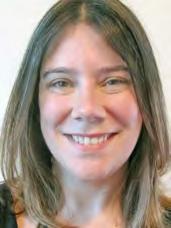
Valentina Greco, PhD Yale

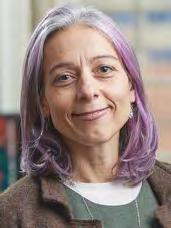
Dr. Greco is the inaugural Carolyn Slayman Professor at Yale University where she is utilizing genetic, live imaging and genomic approaches to capture the emergence of cancer by live imaging to transform current therapeutic strategies to cure and prevent cancer. She received her PhD from European Molecular Biology Laboratory, and completed her postdoctoral training at The Rockefeller University.
Dr. Phillips-Cremins is an Associate Professor at the University of Pennsylvania, where her lab focuses on understanding the mechanisms that govern the production of healthy neurons from stem cells and how these mechanisms go awry during the onset of neurodegenerative diseases. She received her PhD from Georgia Institute of Technology, and completed her postdoctoral training at Emory University and UMass Medical School.
Feng Zhang, PhD

Broad Institute of MIT and Harvard Massachusetts Institute of Technology
Dr. Zhang is a Core Member of the Broad Institute and the inaugural James and Patricia Poitras Professor in Neuroscience at MIT, where he is developing and applying disruptive technologies including optogenetics and genome engineering (TALEs and CRISPR) to understand nervous system function and disease. He received his PhD from Stanford University and completed his postdoctoral training at Harvard.
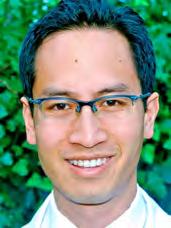
Dr. Chang is a neurosurgeon, Chief of Epilepsy and Pain Neurosurgery and a Professor at the University of California, San Francisco (USCF), where he specializes in advanced clinical brain mapping methods, including awake speech mapping, to safely perform neurosurgical procedures in eloquent areas of the brain. He received his medical degree from UCSF, and completed his postdoctoral training at UC Berkeley.
Lisa Giocomo, PhDDr. Giocomo is an Associate Professor at Stanford University, where her lab integrates a variety of disciplines and tools to study how singlecell biophysics and network dynamics interact to mediate spatial memory and navigation. She received her PhD at Boston University, and completed her postdoctoral studies at The Norwegian University of Science and Technology.
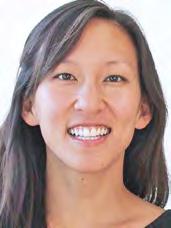
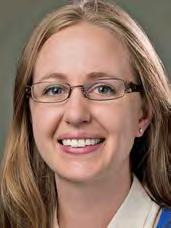
Dr. Tye is the Wylie Vale Professor at The Salk Institute for Biological Studies, where her lab focuses on understanding how the brain processes the differences between positive and negative stimuli, and leveraging cutting-edge techniques to reprogram neural circuits to induce long lasting changes in behavior. She completed her postdoctoral training at Stanford University, and started her independent laboratory at Massachusetts Institute of Technology before moving to Salk.

Dr. Guttman is a Professor in the Division of Biology and Biological Engineering at the California Institute of Technology. His lab aims to understand how lncRNAs, a class of noncoding genes described by Dr. Guttman, perform many jobs in the cell, among them regulating the plasticity of embryonic stem cells and controlling how stem cells become any other kind of cell. He completed his postdoctoral studies at MIT and the Broad Institute of MIT and Harvard.
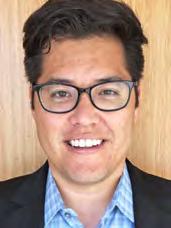
Dr. Ichida is an Associate Professor in the Department of Stem Cell Biology and Regenerative Medicine at the University of Southern California, where he is focusing on using patient-specific disease modeling, next-generation sequencing, and chemical screening to identify disease mechanisms and new treatments for Lou Gehrig’s Disease and sensorineural hearing loss. He completed his postdoctoral studies at Harvard University.
Kristy Red-Horse, PhD
Dr. Red-Horse is an Associate Professor in the Biology Department at Stanford University, where her lab focuses on how cardiovascular stem cells behave in three dimensions and at the single cell level, bringing a high-resolution understanding of embryonic development to injury and disease models. She completed her postdoctoral studies at Genentech and Stanford University.
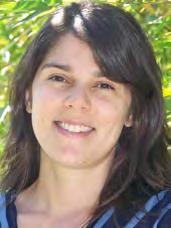
Dr. Adesnik is an Associate Professor of Neurobiology at University of California, Berkeley, where he is focusing on revealing the neural basis of sensory perception at the synaptic, systems, and behavioral levels. His lab aims to understand the brain’s language, to crack the neural code, and address what goes awry in neurological disease. He completed his postdoctoral studies at University of California, San Diego.
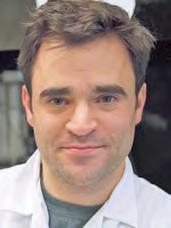
Dr. Rogulja is an Associate Professor in the Department of Neurobiology at Harvard Medical School, where her lab is focusing on the genetics of sleep regulation and the molecular regulatory mechanisms and neuronal circuitry of the sensory gating that takes place in the various stages of sleep. Her work has the potential to move sleep research from the descriptive to molecular and mechanistic. She completed her postdoctoral studies at The Rockefeller University.
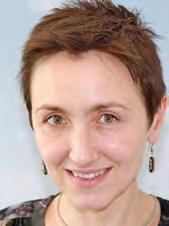
Maria Barna, PhD
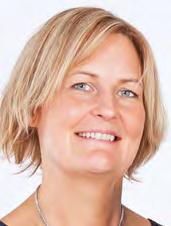
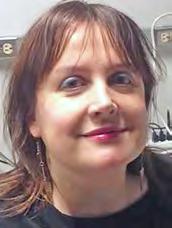
Stanford University
Dr. Barna is an Associate Professor in the Departments of Developmental Biology and Genetics at Stanford University. Her lab focuses on the importance of ribosomes in cell communication to determine stem cell development and gene expression. She aims to show how ribosomes are involved in the remarkable diversity of cell types characteristic of normal embryonic development. She completed her postdoctoral studies at University of California, San Francisco.
Malin Parmar, PhD Lund University, Sweden
Dr. Parmar is a Professor in the Cellular Neuroscience Department at Lund University, Sweden, where she is focusing on bringing new cell-based therapies for Parkinson’s disease to the clinic by replacing lost dopamine neurons with new, healthy cells. Her work in cellular reprogramming opens up the possibilities of personalized treatments of patients with healthy versions of their own cells. She completed her postdoctoral studies at Lund University, Sweden and Edinburgh University, Scotland.
Takanori Takebe, MD, PhD

Dr. Takebe is an Associate Professor and Director for Commercial Innovation at Cincinnati Children’s Hospital Medical Center and an Associate Professor at Yokohama City University, Japan. His lab is developing and applying mini-organ technologies from human stem cells – namely organ bud transplants – in patients with a rare congenital metabolic disorder, ultimately expanding the clinical applications to diseases like liver cirrhosis. He completed his postdoctoral studies at Yokohama City University, Japan.
Dr. Lehtinen is a Professor in the Department of Pathology at Boston Children’s Hospital, Harvard Medical School. Her research focuses on how cerebrospinal fluid regulates the development and health of the brain. By determining the mechanisms by which the cerebrospinal fluid delivers instructive cues for stem cells in the brain, her lab can provide the foundation for understanding normal brain development. She completed her postdoctoral studies at University of Helsinki, Finland and Boston Children’s Hospital.
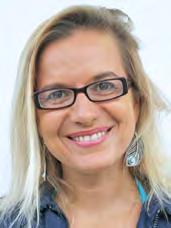

Dr. Wyart is an Independent Group Leader at the Brain & Spine Institute (ICM), France, where her team focuses on the presence of multiple signaling molecules in the cerebrospinal fluid that regulate complex behavior, such as appetite, locomotion, sleep and arousal, and sickness behavior. Her work aims to understand how the central nervous system can perceive and respond to internal state changes in both body and brain. She completed her postdoctoral studies at University of California, Berkeley and the Curie Institute, France.
Dr. Yartsev is an Associate Professor in the Department of Bioengineering and the Helen Wills Neuroscience Institute at University of California, Berkeley. His lab uses neurophysiological, optogenetic, imaging and molecular techniques in a novel model system – the bat – to study the neurobiological basis of language learning in the mammalian brain and ultimately investigate a wide range of neurological disorders associated with language. He completed his postdoctoral studies at Princeton University.
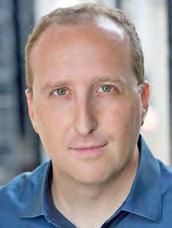
Dr. Pasca is a Professor of Psychiatry and Behavioral Sciences at Stanford University and Director of the Stanford Neurosciences Institute Stem Cell Core. He is primarily focused on the development of new approaches for studying human brain development, like building mini brain organoids, and for uncovering the mechanisms of neuropsychiatric disorders. He completed his postdoctoral studies at Stanford University.
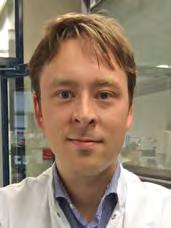

Academic Medical Center, Amsterdam, The Netherlands
Dr. Vermeulen is a Principal Investigator and Professor at the Center for Experimental Molecular Medicine at Academic Medical Center, Amsterdam, The Netherlands, where he is focusing on the role of stem cells in colorectal cancer development and progression. He aims to develop improved preventive strategies and novel, more effective therapies for this disease by studying the effects of genetic mutations on the behavior of stem cells in the gut. He completed his postdoctoral studies at University of Cambridge, United Kingdom.
Brian Wainger, MD, PhD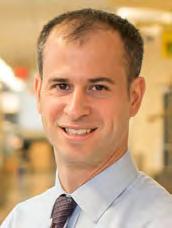
Dr. Wainger is an Assistant Professor of Neurology and Anesthesia at Massachusetts General Hospital. His lab aims to develop a precision medicine platform by which analyses of stem cells and derived cell types can be used to build more powerful human models in the laboratory. He is also currently conducting clinical trials in patients with amyotrophic lateral sclerosis (ALS). He completed his residency and clinical fellowship at Massachusetts General Hospital and Brigham and Women’s Hospital.
Dr. Brohawn is an Assistant Professor in the Department of Molecular and Cellular Biology at University of California, Berkeley. His lab is focused on understanding how the nervous system senses and responds to physical forces, which is at the heart of the classic senses of hearing and touch. It also underlies other sensations, including those involved in balance, pain, breathing, digestion, and blood pressure control. He completed his postdoctoral studies at The Rockefeller University.


Dr. Scherrer is an Associate Professor in the Department of Cell Biology and Physiology at UNC, where he is proposing to alter the brain’s interpretation of pain signals to eliminate the unpleasantness associated with pain and restore patients’ quality of life. Long term, he hopes to discover new drugs that can interfere with the function of neurons to ultimately provide pain relief and provide a therapeutic solution for millions of patients. He completed his postdoctoral studies at Columbia University and began his independent laboratory at Stanford University School of Medicine.
Dr. Witten is a Professor in the Neuroscience Institute and Department of Psychology at Princeton University. Her lab studies the neural circuits for reward learning and decision-making, with a focus on the role of dynamics and feedback in these cognitive processes. The work promises to provide important insights regarding how actions are linked to later occurring outcomes in support of learning, a central open question in the field of reinforcement learning. She completed her postdoctoral studies at Stanford University.
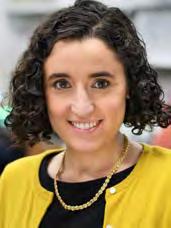
The NYSCF – Robertson Stem Cell Prize was awarded annually to an outstanding young stem cell scientist in recognition of significant and pathbreaking translational stem cell research.
Each NYSCF – Robertson Stem Cell Prize Recipient received a monetary award to be used for research purposes as well as a sculpture from The New York Stem Cell Foundation.
2017 Paul J. Tesar, DPhil
Vice President of Biology at Convelo Therapeutics Professor at Case Western Reserve University

For pioneering novel stem cell-based therapies to treat neurological disorders
Dr. Tesar won the Prize for his pioneering discovery of pluripotent epiblast stem cells as well as the development of technologies to utilize pluripotent stem cells for discovery of new therapeutics for neurological disorders such as multiple sclerosis and pediatric leukodystrophies. His transformative discoveries are fundamentally enabling critical advances in stem cell biology and regenerative medicine.
2016 Feng Zhang, PhD

Core Member of the Broad Institute of MIT and Harvard Professor at Massachusetts Institute of Technology
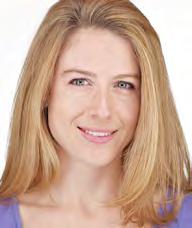
For the development of genome editing tools from CRISPR-Cas9
Dr. Zhang won the Prize for his development of the CRISPRCas9 gene editing system, using the technique in human cells. The CRISPR-Cas9 system and later advances, also developed by Dr. Zhang, are easy to execute with almost endless possibility for new research enabling scientists to change, delete, and replace any genes of any animal. His methods are being used in immunology, clinical medicine, and cancer biology.
2015 Franziska Michor, PhD
Professor and Chair at Dana-Farber Cancer Institute Professor at Harvard T.H. Chan School of Public Health
For the development of novel, interdisciplinary approaches to treat cancer
Dr. Michor won the Prize for her work pioneering new approaches to study the growth, spread, and treatment of cancer. Her quantitative approaches have called into question drug regimens for cancer treatments, in particular, chronic myelogenous leukemia (CML), a type of blood cell cancer. Dr Michor’s work simulates what happens if drugs are introduced in different time intervals in order to optimize treatment by reducing the amount of surviving cancer cells.

Dr. Wernig won the Prize for his discovery that human skin cells can be converted directly into functional neurons, termed induced neuronal (iN) cells. This new technique transformed the field of cellular reprogramming by eliminating the need to first create iPS cells, making it easier to generate patient or disease-specific neurons. These cell types hold tremendous therapeutic and translational relevance for patients around the world.
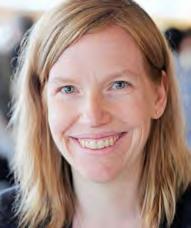
Dr. Wagers won the Prize for her discovery of a hormone, GDF11, that regulates aging through stem cell “rejuvenation”, which has the potential to provide transformative new therapies for aging and chronic degenerative diseases. Her work has the potential to impact treatment of diabetes, cancer, and muscular dystrophy among many other devastating conditions. Her lab focuses on the regulation and therapeutic potential of blood and muscle stem cells.
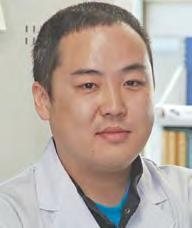
For the discovery of induced pluripotent stem cells
Dr. Takahashi won the Prize for his vital contribution to induced pluripotent stem (iPS) cell derivation at Kyoto University, Japan. He was lead author on a series of landmark papers that described reprogramming adult cells into iPS cells, which were published while he was a postdoctoral researcher in the laboratory of Shinya Yamanaka, MD, PhD, winner of the 2012 Nobel Prize in Physiology and Medicine. His path-breaking work has opened up the field of stem cell research.
2011 Peter J. Coffey, DPhil Professor at University College London, United Kingdom Professor at University of California, Santa Barbara
For the first stem cell trial to treat blindness
Dr. Coffey won the Prize for his pioneering work in the use of human embryonic stem cells to halt visual deterioration and treat age-related eye diseases, resulting in the first clinical stem cell trials to attempt to treat blindness. His research has demonstrated that stem cell-based therapy halted visual deterioration in models of Age-Related Macular Degeneration (AMD), a currently untreatable form of blindness affecting millions of people across the globe.
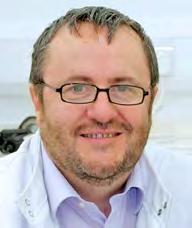

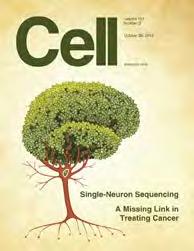
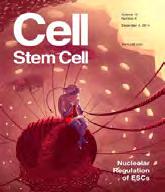


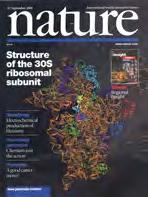
Dr. Malin Parmar is conducting clinical trials using cell-based therapies for Parkinson’s disease, which focus on replacing lost dopamine neurons with new, healthy cells.
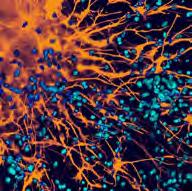

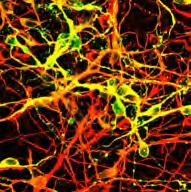
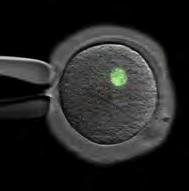
Dr. Peter J. Coffey developed a technique to generate eye cells from stem cells to treat age-related macular degeneration that entered clinical trials in 2015 in the UK.
Dr. Michael Long has developed a technique to cool the brain’s speech center during surgery and test the patient’s speaking ability throughout an operation to protect important brain centers during neurosurgery.
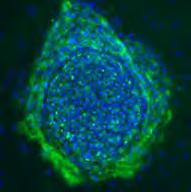
Dr. Dieter Egli developed a novel technique to prevent mother-to-child transmission of mitochondrial mutations. The technique was approved for clinical trials in the UK in late 2016 and is pending in the US.
Dr. Edward Chang’s clinical research program focuses on outcomes, decision-making, and safety improvement of cuttingedge treatments for epilepsy, ultimately helping patients find safer and better treatments.
Dr. Ravi Majeti is conducting clinical trials for patients with acute myeloid leukemia (AML) in the UK and California by targeting CD47, a specific protein that cloaks cancer cells.
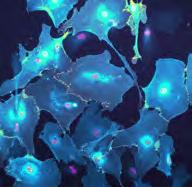
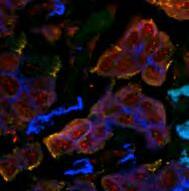
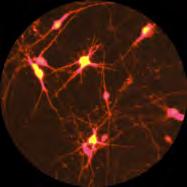

Dr. Brian Wainger has conducted Phase 2 clinical trials for ALS patients, testing a drug originally intended to treat epilepsy, after it was shown to be effective on stem cell models of the disease.
Dr. Marius Wernig’s research in Epidermolysis Bullosa (skin disease) and Pelizaeus-Merzbacher disease (a childhood neurological condition) is moving towards Phase 1 clinical trials.
Dr. Franziska Michor aims to improve anti-cancer treatment options through the mathematical modeling of treatment regimes. Her models of optimum administration schedules are currently in clinical trials to bypass acquired resistances of cancer.
Dr. Takanori Takebe is developing mini-organ technologies from human stem cells, succeeding at growing a connected set of three organs: the liver, pancreas, and biliary ducts. Most recently, he has developed a gene test that can predict the risk of medications that may cause liver injury.
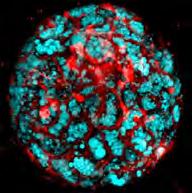
Founding Scientific Advisor, Dr. Feng Zhang NYSCF – Robertson Stem Cell Investigator Alumnus
Editas Medicine translates its genome editing technology into a novel class of human therapeutics that enable precise and corrective molecular modification to treat the underlying, genetic cause of a broad range of diseases.


Co-Founder and CSO, Dr. Christopher Gregg NYSCF – Robertson Neuroscience Investigator Alumnus
Storyline Health is focused on creating a new field of Precision Behavioral Medicine that seeks to understand human behavior and make that knowledge useful for everyone.
Co-Founder and Board Member, Dr. Ravi Majeti NYSCF – Robertson Stem Cell Investigator Alumnus
FortySeven is a clinical-stage company developing the next generation of immune-oncology treatments through the engagement of new pathways that enhance anti-tumor efficacy and electivity.
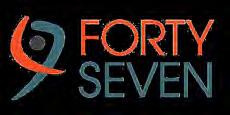

Co-Founder and President, Dr. Justin Ichida NYSCF – Robertson Stem Cell Investigator Alumnus
AcuraStem is developing a platform to more accurately model and find treatments for patients suffering from Amyotrophic Lateral Sclerosis (ALS) and Frontotemporal Dementia (FTD).
Co-Founder, Dr. Ed Boyden NYSCF – Robertson Neuroscience Investigator Alumnus
Cognito Therapeutics is an early-stage medical device company developing a device-based approach to treating Alzheimer’s disease. Cognito is developing the use of induced brain wave oscillation to treat Alzheimer’s.

Co-Founder, Dr. Derrick Rossi NYSCF – Robertson Stem Cell Investigator Alumnus
Moderna Therapeutics is pioneering a new class of drugs, messenger RNA therapeutics, with the vast potential to treat many diseases across a range of drug modalities and therapeutic areas.


Co-Founder and Board Member, Dr. Paul Tesar NYSCF – Robertson Stem Cell Investigator Alumnus
President and Chief Executive Officer, Dr. Derrick Rossi NYSCF – Robertson Stem Cell Investigator Alumnus
Convelo Therapeutics is developing screening strategies to identify novel therapeutics for neurological disorders, specifically in regenerating myelin within the central nervous system.

Scientific Co-Founder and Senior Advisor, Dr. Vikram Khurana NYSCF – Robertson Stem Cell Investigator
Yumanity Therapeutics is committed to identifying and developing new, disease-modifying therapies to address neurodegenerative diseases, including Alzheimer’s and Parkinson’s disease.

Scientific Co-Founder, Dr. Amy Wagers NYSCF – Robertson Stem Cell Prize Recipient
Elevian is developing a number of therapeutics that regulate GDF11 – a naturally occurring molecule shown to reduce agerelated symptoms in mice – to restore the body’s natural regenerative capacity.
Co-Founder, Dr. Elaine Hsiao NYSCF – Robertson Neuroscience Investigator
PurposeBio is advancing proprietary, groundbreaking research and developing Evidence-Based Microbiome Therapeutics with the aim of positively affecting the health and lives of at least 1 in 2 of the world’s human population.
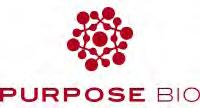
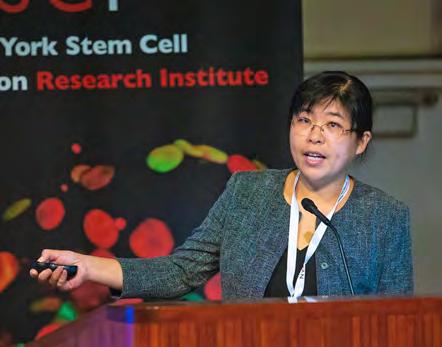
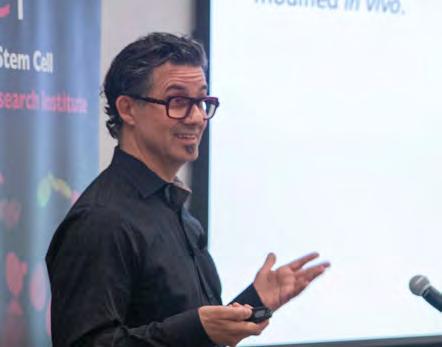

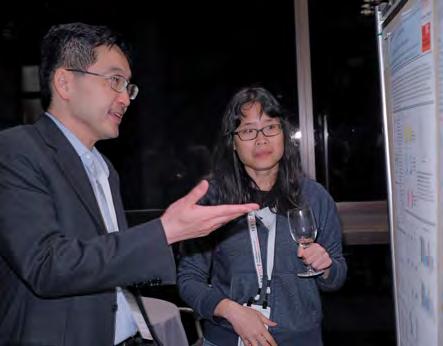
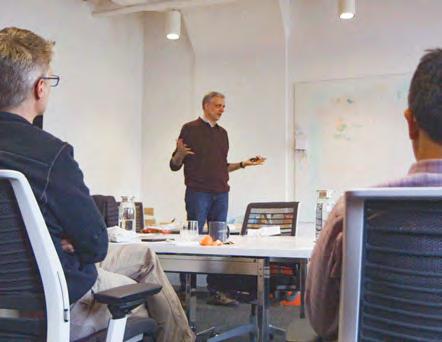
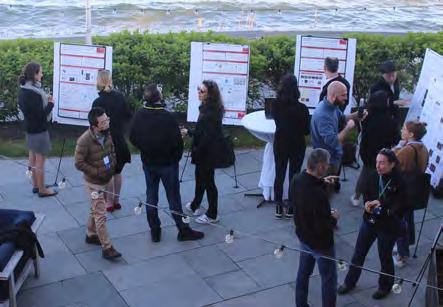
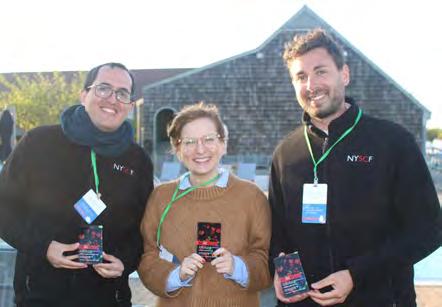
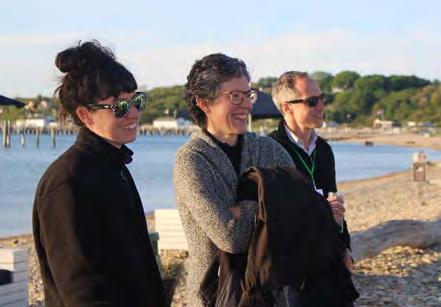
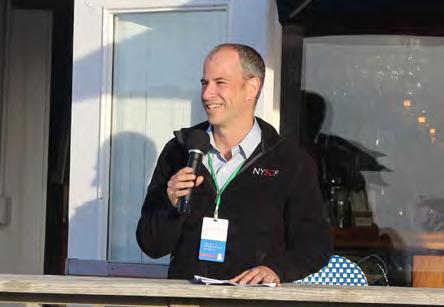
 Top row from left: Drs. Annegret L. Falkner, Lindy McBride, and David Schneider; Dr. Brian Wainger; Middle: NYSCF Innovators at 2022 Innovators Retreat;
Bottom row from left: Drs. Jesus M. Gomez Salinero, Katie Cockburn, and Filippo Cipriani
Top row from left: Drs. Annegret L. Falkner, Lindy McBride, and David Schneider; Dr. Brian Wainger; Middle: NYSCF Innovators at 2022 Innovators Retreat;
Bottom row from left: Drs. Jesus M. Gomez Salinero, Katie Cockburn, and Filippo Cipriani
NYSCF’S Board of Directors are leaders in medicine, the arts, and business. Their talents and experience, combined with an unwavering commitment to advancing stem cell research, guide NYSCF in realizing its mission.
Roy Geronemus, MD, Chairman Susan L. Solomon, Founding CEO* Margo Alexander Marilyn G. Breslow Peggy Brim Karen E. Burke, MD, PhD Francesco Clark Paul Goldberger George Lazarus, MD Richard J. Massey, PhD Paul M. Meister Siddhartha Mukherjee, MD, DPhil Stephen M. Ross Derrick Rossi, PhD, Interim Chief Executive Officer Stephen M. Scherr Kay Unger Clyde Williams
LEADERSHIP COUNCIL
NYSCF’S Leadership Council members are valued ambassadors who are committed to funding and promoting NYSCF’s mission to accelerate cures through stem cell research.
Katherine Bristor & William Priest David A. Carmel Russell L. Carson
*Chuck Close Alan M. Cohen Shirley Cook Fiona Druckenmiller Jodie & John Eastman Frank Gehry
Lawrence E. Golub & Karen Finerman
April Gornik
Marlene Hess
Tania Higgins Dorothy Lichtenstein Sandra Lloyd Stephen Meringoff
David Mitnick
Nancy & Fred Poses Carol Roaman
Julian Robertson* David Rockwell
Clifford Ross Kara Ross & Stephen Ross
Andy Russell
Susan & Stephen Scherr Ian Schrager Barbara Stovall Smith Martha Stewart David & Jane* Walentas John Whitehead* Dick Wolf
*In Memoriam
as of 10/19/2022
